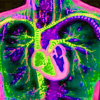Consciousness - Discussion
Consciousness
| Consciousness | Not two, not one | 9/17/17 9:21 PM |
 RE: Consciousness
RE: Consciousness
|
(D Z) Dhru Val | 9/18/17 4:06 AM |
 RE: Consciousness
RE: Consciousness
|
Not two, not one | 9/18/17 5:26 AM |
 RE: Consciousness
RE: Consciousness
|
Nicky | 9/18/17 5:53 AM |

Not two, not one, modified 6 Years ago at 9/17/17 9:21 PM
Created 6 Years ago at 9/17/17 9:21 PM
Consciousness
Posts: 1038 Join Date: 7/13/17 Recent Posts
Seeing as people are arguing about consciousness in the Robert Wright thread, I just wanted to propose a materialist hypothesis.
Consciousness is just an emotion, like joy, love, stress, or anger.
I am separating consciousness from problem solving, langauge, etc. Robots and computers can do all of those (as can bee hives) without us feeling the necessity to hypothesise consciousness. So those other brain functions are not consciouness.
So, if anybody can show why this hypothesis is inadequate, or beaten by a bettter hypothesis, please do!
But even if we do have a fully materialist explanation of consciousness, that doesn't make it any less magical/divine/miraculous.
Peace and love.
Malcolm
Consciousness is just an emotion, like joy, love, stress, or anger.
I am separating consciousness from problem solving, langauge, etc. Robots and computers can do all of those (as can bee hives) without us feeling the necessity to hypothesise consciousness. So those other brain functions are not consciouness.
So, if anybody can show why this hypothesis is inadequate, or beaten by a bettter hypothesis, please do!
But even if we do have a fully materialist explanation of consciousness, that doesn't make it any less magical/divine/miraculous.
Peace and love.
Malcolm

(D Z) Dhru Val, modified 6 Years ago at 9/18/17 4:06 AM
Created 6 Years ago at 9/18/17 4:06 AM
RE: Consciousness
Posts: 346 Join Date: 9/18/11 Recent Postscurious:
Seeing as people are arguing about consciousness in the Robert Wright thread, I just wanted to propose a materialist hypothesis.
Consciousness is just an emotion, like joy, love, stress, or anger.
I am separating consciousness from problem solving, langauge, etc. Robots and computers can do all of those (as can bee hives) without us feeling the necessity to hypothesise consciousness. So those other brain functions are not consciouness.
So, if anybody can show why this hypothesis is inadequate, or beaten by a bettter hypothesis, please do!
But even if we do have a fully materialist explanation of consciousness, that doesn't make it any less magical/divine/miraculous.
Consciousness is just an emotion, like joy, love, stress, or anger.
I am separating consciousness from problem solving, langauge, etc. Robots and computers can do all of those (as can bee hives) without us feeling the necessity to hypothesise consciousness. So those other brain functions are not consciouness.
So, if anybody can show why this hypothesis is inadequate, or beaten by a bettter hypothesis, please do!
But even if we do have a fully materialist explanation of consciousness, that doesn't make it any less magical/divine/miraculous.
Conceiving of consciousness as just an emotion doesn't really make sense unless you are using the word to mean something entirely different and much more narrowly constrained than Daniel et al are describing in that tread.
Emotions are subsets of consciousness. All your sensory perceptions and thoughts are also subsets of consciousenss.
Consciouness is your entire 1st experience of reality. Since your ideas of 1st, 2nd and 3rd viewpoints are subsets of the 1st person experience we can simply say that consciousness is your experience of reality.
Form a materialistic standpoint, only 3rd person objective view can be considered 'Truth'. 1st person expereince is something that is objectively unreliable, and entirely fabricated by materialist phenomenon which is always viewed as 3rd person objective.
From a contemplative standpoint the 3rd person objective view is at best a valid inference based on emprical observation, it is epistemiologically inferior to and a subset of 1st person experience.

Not two, not one, modified 6 Years ago at 9/18/17 5:26 AM
Created 6 Years ago at 9/18/17 5:22 AM
RE: Consciousness
Posts: 1038 Join Date: 7/13/17 Recent Posts
(edit - typos corrected)
I guess my point is that our sensate experience of reality does not really require the idea of a consciousness.
We do tend to attribute the processing of sensations and taking of actions to our consciousness. But perception, information processing and reaction could equally be ascribed to inanimate processes or to a 'sub-conscious' exchange of information that has no reflective feeling of knowing, and no requirement for the idea of consciousness.
As a thought experiment, imagine an interlinked system of sensory input, programmed responses, and change over time. I argue this accurately represents a mind (five aggregates). But all of this could be reproduced in a robot with no consciousness.
Or more radically, the mind is simlar in kind (although much more complicated) to a foreshore blow hole. In this the external sea travels through the rock channels to produce a plume of spray. The plume of spray is an 'action' in response to a 'sensory input' (the wave) depending on pre-programed channels. It produces different 'actions' (plumes of spray) in response to different inputs (waves), and changes over time in response to erosion, some of which it generates itself by resisting the sea and scattering spray. But we wouldn't say there is any consciouness there.
So why do we require the idea of consciousness in a mind? Purely because we think we feel it. Hence my argument is that consciousness is just a feeling, or an emotion (depending on how you use the word). It is not a necessarily property of sensate information processing - otherwise we would call a cabbage conscious. Yes, sufficiently complex sensate information processing can be said to create a mind - but at most a mind requires a sub-conscious, and not a consciousness.
So my argument is that the paradox of consciousness arises from the desire to reify an empty concept. There should be no paradox, because consciousness does not really exist. Instead, some of information processing gets overlaid with a feeling of knowing, just as some memories get overlaid with aversion or attraction, or some memories get connected together with a narrative sense of self. It is just a weird by product of a complex system. Of course you might say that is close enough to consciousness to be called consciousness - but that raises interesting questions about what else is conscious, how we might create consciousness, and how we might liberate consciousness from stress.
I'm sure I'm completely wrong, but hopefully less wrong than I used to be! I ceratinly think Buddhist ideas remain way ahead of western neuroscience and neurophilosophy. It's really fun to think about these things to keep boredeom at bay while I try to unify and pacfiy the mind.
:-)
I guess my point is that our sensate experience of reality does not really require the idea of a consciousness.
We do tend to attribute the processing of sensations and taking of actions to our consciousness. But perception, information processing and reaction could equally be ascribed to inanimate processes or to a 'sub-conscious' exchange of information that has no reflective feeling of knowing, and no requirement for the idea of consciousness.
As a thought experiment, imagine an interlinked system of sensory input, programmed responses, and change over time. I argue this accurately represents a mind (five aggregates). But all of this could be reproduced in a robot with no consciousness.
Or more radically, the mind is simlar in kind (although much more complicated) to a foreshore blow hole. In this the external sea travels through the rock channels to produce a plume of spray. The plume of spray is an 'action' in response to a 'sensory input' (the wave) depending on pre-programed channels. It produces different 'actions' (plumes of spray) in response to different inputs (waves), and changes over time in response to erosion, some of which it generates itself by resisting the sea and scattering spray. But we wouldn't say there is any consciouness there.
So why do we require the idea of consciousness in a mind? Purely because we think we feel it. Hence my argument is that consciousness is just a feeling, or an emotion (depending on how you use the word). It is not a necessarily property of sensate information processing - otherwise we would call a cabbage conscious. Yes, sufficiently complex sensate information processing can be said to create a mind - but at most a mind requires a sub-conscious, and not a consciousness.
So my argument is that the paradox of consciousness arises from the desire to reify an empty concept. There should be no paradox, because consciousness does not really exist. Instead, some of information processing gets overlaid with a feeling of knowing, just as some memories get overlaid with aversion or attraction, or some memories get connected together with a narrative sense of self. It is just a weird by product of a complex system. Of course you might say that is close enough to consciousness to be called consciousness - but that raises interesting questions about what else is conscious, how we might create consciousness, and how we might liberate consciousness from stress.
I'm sure I'm completely wrong, but hopefully less wrong than I used to be! I ceratinly think Buddhist ideas remain way ahead of western neuroscience and neurophilosophy. It's really fun to think about these things to keep boredeom at bay while I try to unify and pacfiy the mind.
:-)

Nicky, modified 6 Years ago at 9/18/17 5:53 AM
Created 6 Years ago at 9/18/17 5:53 AM
RE: Consciousness
Posts: 484 Join Date: 8/2/14 Recent Posts
Consciousness is sense-awareness, such as seeing, hearing, tasting, touching, smelling & knowing. It is not an emotion.



